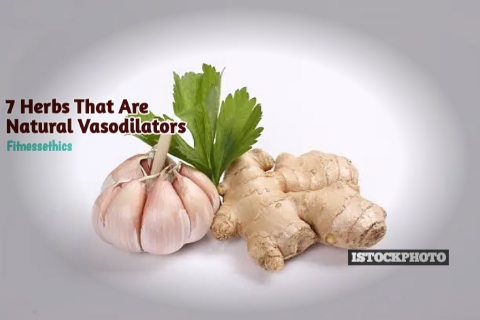Herbs That Are Vasodilators
Vasodilation is the widening of blood vessels, which can improve blood flow and lower blood pressure. There are several herbs that have vasodilatory effects and can be used to help improve cardiovascular health. Here are seven examples:
Garlic
This common kitchen herb has been used for centuries to improve cardiovascular health. It contains compounds that can help relax blood vessels and improve blood flow.
Ginkgo biloba
This herb is commonly used to improve cognitive function, but it also has vasodilatory effects. It can help improve blood flow to the brain and other parts of the body.
Hawthorn
This herb is often used to treat heart failure and other cardiovascular conditions. It contains flavonoids and other compounds that can help dilate blood vessels and improve blood flow.
Cayenne pepper
This spicy herb contains capsaicin, a compound that can help dilate blood vessels and improve blood flow. It is often used to treat circulatory problems and other cardiovascular conditions.
Ginger
This common kitchen herb has been used for centuries to improve digestion and reduce inflammation. It also has vasodilatory effects and can help improve blood flow.
Turmeric
This popular herb contains curcumin, a compound that has been shown to have vasodilatory effects. It can help improve blood flow and lower blood pressure.
Green tea
This popular beverage is rich in antioxidants and has been shown to have vasodilatory effects. It can help improve blood flow and lower blood pressure.
It is important to note that these herbs should be used with caution and under the guidance of a healthcare provider. They can interact with certain medications and may not be suitable for everyone. Consult a healthcare provider before using any of these herbs to treat a medical condition.
Benefits of Natural Vasodilators
There are also several natural substances that have vasodilatory effects and can be used to improve cardiovascular health.
Improved blood flow
Vasodilation can help improve blood flow to the organs and tissues, providing them with the oxygen and nutrients they need to function properly. This can help improve overall health and well-being.
Lower blood pressure
Vasodilation can help lower blood pressure by reducing the resistance to blood flow in the arteries. This can help prevent the development of hypertension (high blood pressure) and reduce the risk of heart attack and stroke.
Improved cognitive function
Improved blood flow to the brain can help improve cognitive function, including memory, concentration, and reaction time. This can be especially beneficial for older adults who may be experiencing age-related cognitive decline.
Reduced risk of heart disease
Vasodilation can help improve the health of the cardiovascular system by reducing the risk of heart disease. It can help lower cholesterol levels, improve blood flow to the heart, and reduce the risk of heart attack and stroke.
Reduced inflammation
Vasodilation can help reduce inflammation in the body by improving blood flow to the organs and tissues. This can help reduce the risk of chronic diseases, such as heart disease, cancer, and diabetes.
Improved exercise performance
Vasodilation can help improve blood flow to the muscles, providing them with the oxygen and nutrients they need during exercise. This can help improve exercise performance and enhance muscle growth and recovery.
It is important to note that vasodilation should be used with caution and under the guidance of a healthcare provider. It can interact with certain medications and may not be suitable for everyone. Consult a healthcare provider before using any vasodilatory substances to treat a medical condition.
[starbox]



